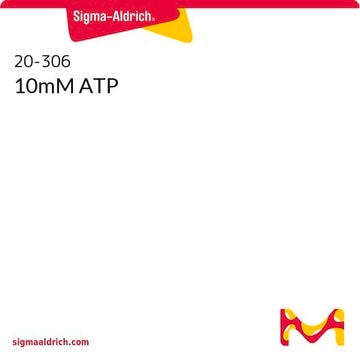MABS2024
Anti-Acetyl CoA Carboxylase 1 Antibody, clone 10H2.1
clone 10H2.1, from mouse
Synonym(s):
ACC1, ACC-alpha
Sign Into View Organizational & Contract Pricing
All Photos(2)
About This Item
UNSPSC Code:
12352203
eCl@ss:
32160702
NACRES:
NA.41
Recommended Products
biological source
mouse
antibody form
purified antibody
antibody product type
primary antibodies
clone
10H2.1, monoclonal
species reactivity
human
packaging
antibody small pack of 25 μg
technique(s)
immunohistochemistry: suitable (paraffin)
western blot: suitable
isotype
IgG1κ
NCBI accession no.
UniProt accession no.
target post-translational modification
unmodified
Gene Information
human ... ACACA(31)
Related Categories
General description
Acetyl-CoA carboxylase 1 (UniProt: Q13085; also known as ACC1, ACC-alpha) is encoded by the ACACA (also known as ACAC, ACC1, ACCA) gene (Gene ID: 31) in human. It catalyzes the rate-limiting reaction in the biogenesis of long-chain fatty acids. ACC1 is a multi-subunit, biotin-dependent enzyme that catalyzes carboxylation of acetyl-CoA to produce malonyl-CoA through its two catalytic activities, biotin carboxylase (BC) and carboxyltransferase (CT). The activity of ACC can be controlled at the transcriptional level as well as by small molecule modulators and covalent modification. Two isoforms fof ACC have been reported, alpha and beta that are encoded by two different genes. ACC-alpha is highly enriched in lipogenic tissues. ACC1 levels are regulated under long term control at the transcriptional and translational levels and under short term regulation by the phosphorylation/dephosphorylation of targeted serine residues and by allosteric transformation by citrate or palmitoyl-CoA. ACC1 activity is inhibited upon phosphorylation, which occurs when glucagon or epinephrine binds to the receptors or when the energy status of the cell is low, leading to the activation of the AMP-activated protein kinase. The presence of fatty acids inhibits the activities of ACC1. ACC is considered as an important target in the design of new anti-obesity drugs.
Specificity
Clone 10H2.1 detects human Acetyl-CoA carboxylase 1. It targets an epitope within 245 amino acids from the C-terminal end.
Immunogen
GST-tagged recombinant fragment corresponding to 245 amino acids from the C-terminal region of human Acetyl-CoA carboxylase 1.
Application
Anti-Acetyl CoA Carboxylase 1, clone 10H2.1, Cat. No. MABS2024, is a mouse monoclonal antibody that detects Acetyl-CoA carboxylase 1 and has been tested for use in Western Blotting and Immunohistochemistry (Paraffin).
Quality
Evaluated by Western Blotting in A431 cell lysate.
Western Blotting Analysis: 0.5 µg/mL of this antibody detected Acetyl CoA Carboxylase 1 in A431 cell lysate.
Western Blotting Analysis: 0.5 µg/mL of this antibody detected Acetyl CoA Carboxylase 1 in A431 cell lysate.
Target description
~265 kDa observed; 265.55 kDa calculated. Uncharacterized bands may be observed in some lysate(s).
Physical form
Format: Purified
Other Notes
Concentration: Please refer to lot specific datasheet.
Not finding the right product?
Try our Product Selector Tool.
Certificates of Analysis (COA)
Search for Certificates of Analysis (COA) by entering the products Lot/Batch Number. Lot and Batch Numbers can be found on a product’s label following the words ‘Lot’ or ‘Batch’.
Already Own This Product?
Find documentation for the products that you have recently purchased in the Document Library.
Our team of scientists has experience in all areas of research including Life Science, Material Science, Chemical Synthesis, Chromatography, Analytical and many others.
Contact Technical Service







